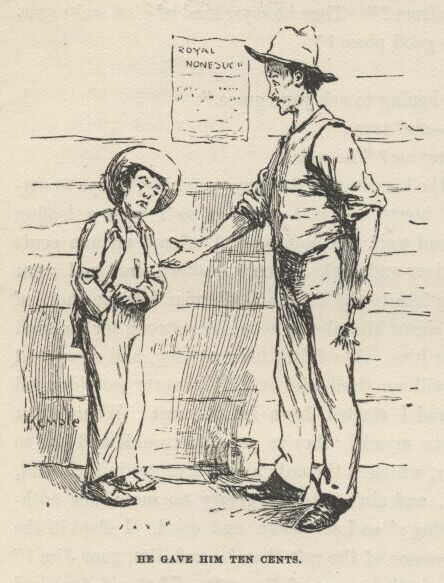
It's not all fun and games around here. In fact, it's not any fun and games around here. Let's get down to business; I'm kind of an expert, and I have a lot of ground to cover.
1. Develop your sense of entitlement.
Constantly reflect on the things society, God, family, and friends owe you. If you're on the fence about any particular thing, count it. You don't have to be right; you just have to be sure. Start your day with a few minutes meditation on all the things others need to do for you. End your day by reflecting on all the ways those in your life have disappointed you and failed your expectations.

2. Never forgive nor forget.
Now that others are constantly disappointing you, hold grudges like playing cards--fan them out wide so you can always see them and keep them close to your heart. Why should you stop being bothered by something today just because it happened in the past? Every offense against you can be carried like an arrow in the quiver, and you may need the ammunition later on when someone asks you for a favor, addresses one of your flaws, or tries to redeem himself. Be vigilant; people have a nasty habit of trying to improve themselves despite being horrible.
Don't be suckered into believing others can change or that you might be wrong about them--if you let up for one moment, they may escape out from under your thumb. Take offense where none was intended. Feed your paranoia. And never miss a chance to make assumptions that reflect poorly on the intentions of others.
3. Compare Yourself to Others.
Match your best qualities to the worst qualities of others. This will reassure you that you are better than everyone else, thus strengthening your sense of entitlement and justifying your grudges. If you come up against someone who manages to outshine you, reverse your strategy and compare your worst attributes to their best attributes. This will make you feel terribly bad about yourself, and that will make hating them easier, which will also keep the fires of entitlement and resentment burning.
4. But Do Not Think of Others.
Here is where it can get complicated. While you are encouraged to think about grudges and traits, don't get caught up thinking about the people behind the disgruntlements and attributes. Thinking of others can lead to losing your sense of entitlement. Being perfectly miserable is a balancing act and there are a lot of ways to find yourself accidentally happy--don't lean so far toward other people that you can no longer stay self-centered.
Accidental moments of happiness will occur most frequently when you are focused on family, friends, or neighbors. If you ever find yourself losing your balance, return to center by asking, "What's in this for me?"
5. Isolate Yourself.
If you fill your house with stuff and things, you will have no need for people. Spend as much time as possible alone watching TV, surfing the internet, playing video games, or reading celebrity gossip magazines. When a human calls you, let them go to voice mail.
If those around you relentlessly try to break your isolation, then use impersonal means of communication to placate them---catch up with friends on a social networking site instead of in real life, or reply via text message. When you must interact with others, do it in the most dehumanizing way possible---see if you can strip people of facial expressions, body language, tone, and other cues that might make them relatable. Once you allow an individual to become a human, you run the risk of identifying and even (shudder) sympathizing with her. This will make steps 1-4 much more difficult. If you find yourself getting caught up in humanizing others, try using people as objects. Philandering can be helpful here. Have a relationship with a man because of his income, or be intimate with a woman strictly because of her body. Stereotypes can only help. Staying shallow avoids entanglement.

6. Avoid Dealing with Problems.
This is the sister principle to personal isolation. Dealing with problems can lead to forgiveness, improvement, relief, and other positive feelings. Never respond to a voice message unless you have to. If you get something in the mail that needs your attention or might inconvenience you, throw it away--you won't have to deal with it once it's in the garbage. Ignore bills, duck responsibility, don't clean up after yourself, etc. If it sounds, smells, or looks like work, hide from it. If you cannot hide, start by doing the least you can.
If someone does something you do not like, don't address the problem. Let it fester. If that person insists on talking, make him disposable---block him from your phone, filter his emails, pretend your not at home when he stops by, etc. Eat the orange and throw out the peel--once you've gotten all you want from another, the moment a relationship becomes difficult instead of fun, toss it out of your life.
7. Lose Your Freedom.
The ability to choose and to act for yourself can be dangerous, because you never know when it might lead to a feeling of accomplishment. Be creative. We all know people who are slaves to debt, drugs, and alcohol. These are good places to start, but there are so many other ways to bind yourself in chains.
Make it a point to avoid education and hold to ignorance. Assume your political party is always right, and let it make up your mind for you lest you should be open to new ideas. Try being overweight and out of shape. A pornography or sex addiction can be particularly helpful, because it limits autonomy and dehumanizes others. Don't keep a regular sleeping schedule so you can be tired all the time. Not only will this help to prevent you from leaving the house, helping others, or doing work, but you typically make your worst decisions when you're tired, and a miserable life is built one bad decision at a time.
 Perfection in any area isn't easy to achieve, but you may only be seven steps away from being perfectly miserable. And then won't life be great?
Perfection in any area isn't easy to achieve, but you may only be seven steps away from being perfectly miserable. And then won't life be great?

No comments:
Post a Comment